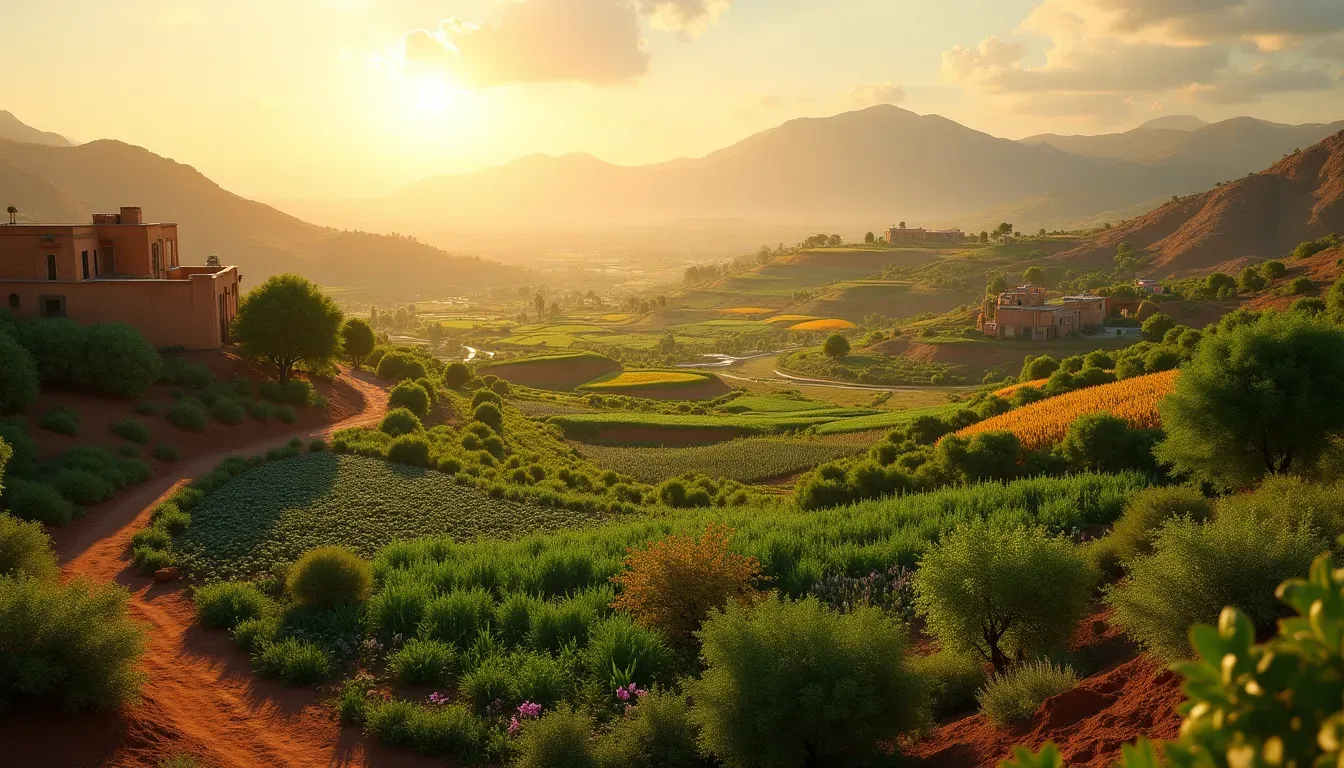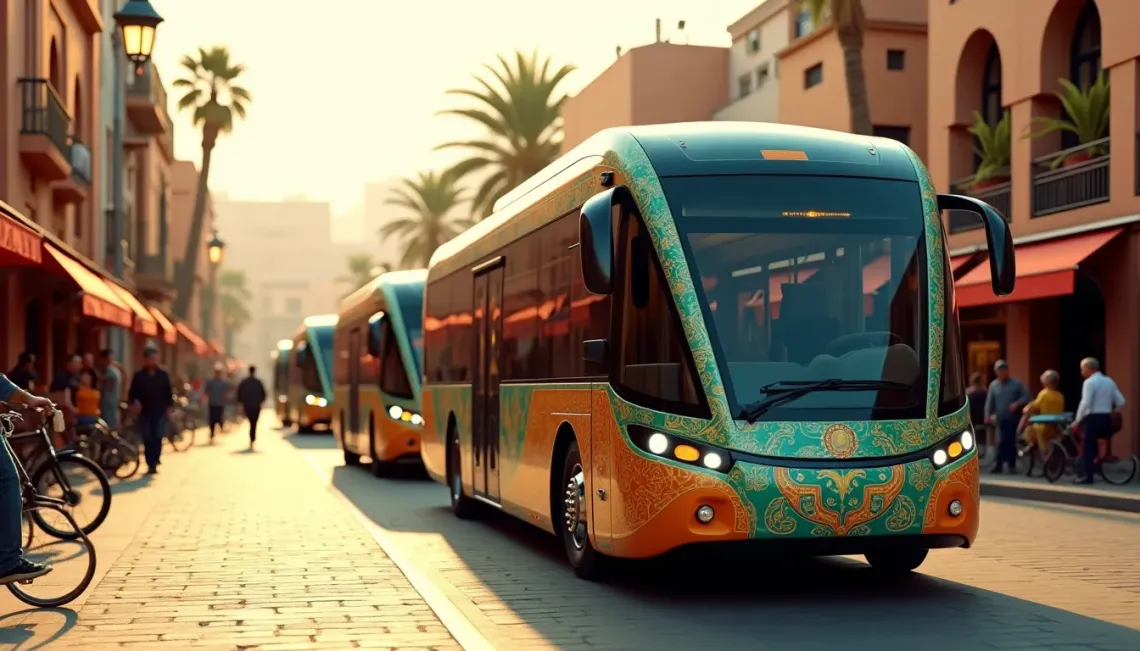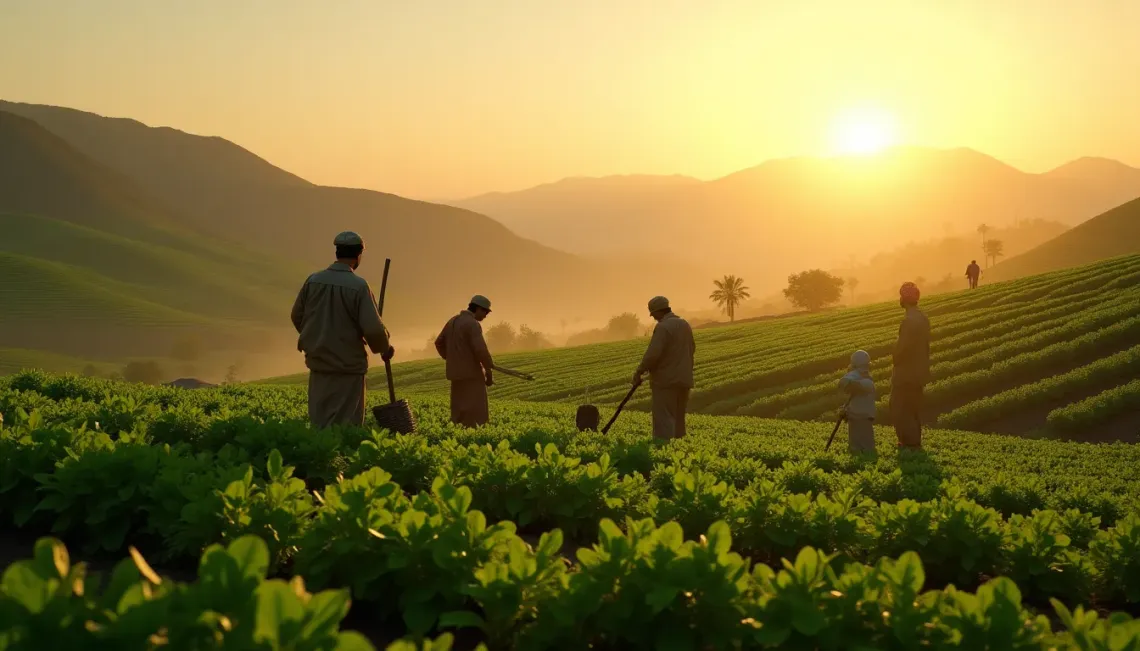In recent years, permaculture has emerged as a transformative force in Moroccan agriculture. This innovative approach emphasizes sustainable farming and regenerative agriculture, seeking to promote food security in a country facing both environmental and economic challenges. As farmers and environmentalists in Morocco explore ways to make agriculture more sustainable, permaculture offers a promising path forward.
Understanding Permaculture in Moroccan Agriculture
Permaculture, a portmanteau of "permanent agriculture," is a holistic, design-driven approach to farming and land management. It focuses on mimicking natural ecosystems to create sustainable and self-sufficient environments. In Moroccan agriculture, permaculture involves using techniques such as crop rotation, companion planting, and water conservation to enhance productivity while preserving natural resources.
The Principles of Permaculture
The principles of permaculture include observing and interacting with natural systems, using renewable resources, and developing biodiversity. These principles are particularly relevant in Moroccan agriculture, where farmers face arid conditions and limited access to water resources. By implementing permaculture techniques, they aim to create a regenerative agriculture system that supports long-term food security.
Benefits of Permaculture for Sustainable Farming in Morocco
Permaculture offers several advantages for sustainable farming:
- Enhanced Soil Health: By reducing soil erosion and increasing organic matter, permaculture improves soil fertility and health, pivotal for Moroccan agriculture.
- Water Conservation: Techniques such as rainwater harvesting and drip irrigation help manage water use efficiently, critical for maintaining food security in the region.
- Biodiversity: Introducing diverse plant and animal species fosters ecological balance, which is crucial for regenerative agriculture.
Challenges and Opportunities in Adopting Permaculture
While the benefits are substantial, adopting permaculture in Moroccan agriculture does present challenges. These include a lack of awareness and initial investment costs. However, the opportunities far outweigh the drawbacks, especially with the potential to integrate traditional Moroccan agricultural practices with modern permaculture techniques.
The Role of Education and Community in Promotion
Education and community involvement are key to promoting permaculture. Workshops, training sessions, and local collaborations can empower farmers to embrace sustainable farming practices. Community-driven initiatives can also lead to increased resilience in Moroccan agriculture, fostering a collective approach to tackling climate change and ensuring food security.
Permaculture's Future in Moroccan Agriculture
As the practice of permaculture continues to rise, it holds the potential to transform Moroccan agriculture profoundly. By addressing the pressing challenges of sustainable farming and environmental degradation, permaculture supports Morocco's goals of achieving food security and advancing regenerative agriculture.
Ultimately, as more farmers adopt permaculture principles, Moroccan agriculture will become a model of sustainable practices, benefiting both people and planet. For those interested in exploring related sustainable practices, diving into topics like agroforestry and conservation agriculture might provide further insight into how permaculture can align with broader environmental strategies.




